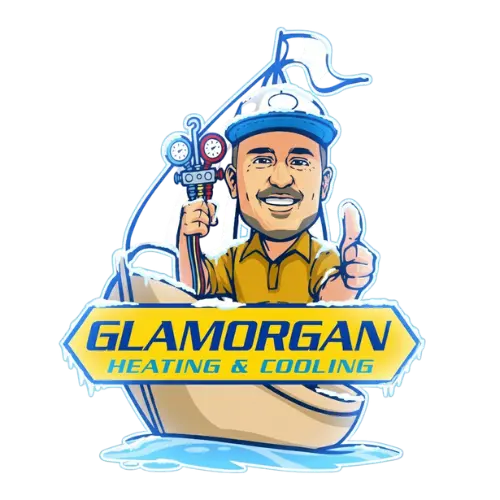HVAC Emergency Preparedness 2025 protects New York families from summer breakdowns, power outages, and supply shortages. Schedule pre-summer inspections, stock air filters, clear outdoor units, and create cooling backup plans to ensure comfort and safety during heatwaves across Albany, Clifton Park, Troy, and the Capital Region.
With New York experiencing hotter summers and unpredictable weather patterns, your HVAC system must be ready for emergencies. Planning ahead now ensures peace of mind when extreme heat strikes.
Why Is Pre-Summer HVAC Inspection Critical for Emergency Preparedness?
Before the first heatwave hits, get a professional inspection. Our EPA-certified technicians clean coils, check refrigerant levels, tighten connections, and ensure your unit runs efficiently. This proactive step prevents mid-summer breakdowns when repair demand is highest and wait times are longest.
TL;DR: Schedule inspections before June to avoid peak delays and system failures during summer heatwaves.
How Often Should You Replace Air Filters for Emergency Readiness?
Clogged filters restrict airflow and strain your HVAC system. Replace filters every 30-60 days and stock extras at home. During emergencies or supply shortages, you may not get replacements quickly – planning ahead keeps your system running smoothly.
What Technology Helps Prevent HVAC Emergencies?
Smart thermostats manage cooling loads effectively and send alerts when your system needs attention. Set energy-saving schedules, control temperature remotely, and receive maintenance reminders – an added layer of protection during high-stress summer months in the Capital Region.
TL;DR: Smart thermostats reduce emergency risks by monitoring system health and sending real-time alerts.
How Do You Stay Cool During Power Outages?
If power goes out, close curtains and blinds to block sunlight. Use battery-powered fans, stay hydrated, and avoid opening doors frequently to retain cool air. Keep portable chargers, backup lighting, and emergency contacts readily accessible.
What Are the Best Backup Cooling Strategies for New York Homes?
| Backup Strategy | Equipment Needed | Best For |
|---|---|---|
| Portable AC Unit | Window-mounted or freestanding unit | Single-room cooling during outages |
| Battery-Powered Fans | Rechargeable or D-battery fans | Short-term comfort, low energy use |
| Evaporative Cooler | Swamp cooler with water reservoir | Dry climates or temporary relief |
| Cool Zone Insulation | Towels, draft stoppers, blackout curtains | Retaining cool air in one room |
What Should You Check Around Your Outdoor HVAC Unit?
Pre-Summer Outdoor Unit Checklist:
- Clear at least 2 feet of space around the condenser unit
- Remove leaves, grass clippings, sticks, and debris
- Trim back shrubs, plants, or vegetation blocking airflow
- Check for signs of rust, damage, or loose components
- Ensure the unit is level and securely mounted
- Schedule professional coil cleaning if visibly dirty
A blocked or obstructed unit can overheat and shut down during peak demand – when you need cooling most.
How Long Do HVAC Repairs Take During Peak Season?
| Repair Type | Off-Season Wait | Peak Season Wait |
|---|---|---|
| Standard Tune-Up | Same day – 2 days | 3-7 days |
| Minor Repair (filter, thermostat) | Same day | 1-3 days |
| Part Replacement (compressor, coil) | 2-5 days | 7-14+ days |
| Emergency Service Call | Same day (24/7) | Same day (24/7) – high demand |
Getting your tune-up done in spring or early summer helps avoid delays caused by part shortages or high technician demand.
How Do You Protect Vulnerable Family Members During Heat Emergencies?
Heat Safety Checklist for Infants, Seniors & Pets:
- Ensure access to cool, air-conditioned rooms or designated cool zones
- Provide plenty of water and hydrating fluids throughout the day
- Avoid outdoor activities between 12 PM and 4 PM (peak heat hours)
- Monitor for signs of heat exhaustion: dizziness, nausea, rapid heartbeat
- Use lightweight, breathable clothing and cooling towels
- Check in regularly on elderly neighbors or family members living alone
HVAC Emergency Preparedness in the Capital Region
Albany, Clifton Park, Troy & Saratoga: Summer temperatures in the Capital Region can exceed 90°F with high humidity, straining HVAC systems. Power outages from storms are common, making backup cooling plans essential. Glamorgan Heating & Cooling provides 24/7 emergency service across Albany, Halfmoon, Mechanicville, and surrounding areas – ensuring fast response when your family needs it most.
Local Tip: Capital Region homes with older HVAC systems (10+ years) should prioritize spring inspections to avoid mid-summer failures during peak demand.
Frequently Asked Questions: HVAC Emergency Preparedness 2025
▸ What should I do if my AC breaks down during a heatwave?
Call Glamorgan Heating & Cooling immediately at (518) 723-0392 for 24/7 emergency service. While waiting, close blinds, use portable fans, stay hydrated, and move vulnerable family members to the coolest room in your home.
▸ What temperature is considered a heatwave for HVAC systems?
A heatwave typically occurs when outdoor temperatures exceed 90°F for three or more consecutive days. HVAC systems face increased strain during prolonged heat, especially when combined with high humidity levels common in New York summers.
▸ How much does an emergency HVAC repair cost in New York?
Emergency service calls typically range from $150-$500 depending on the issue, time of day, and parts needed. Glamorgan provides transparent, upfront pricing with no hidden fees – call for a free estimate.
▸ When should I schedule my HVAC inspection for summer?
Schedule inspections in April or May – before peak summer heat. Early maintenance avoids long wait times, ensures parts availability, and catches problems before they become expensive emergencies.
▸ Can I prevent HVAC emergencies with regular maintenance?
Yes. According to the U.S. Department of Energy, regular HVAC maintenance is one of the most effective ways to prevent unexpected failures during extreme temperatures. Annual tune-ups reduce breakdowns by up to 95%.
▸ What documents should I keep for HVAC emergencies?
Store your HVAC warranty, maintenance records, and Glamorgan contact info (518-723-0392) in an easy-to-access location. Fast access during emergencies saves time and ensures quicker repairs.
▸ Does Glamorgan offer maintenance reminders?
Yes. Join our seasonal maintenance program to receive automatic reminders for inspections, filter changes, and tune-ups. Staying ahead of HVAC care helps avoid emergency breakdowns during high-demand periods.
Stay Ahead of Summer Heat with Glamorgan
At Glamorgan Heating & Cooling, we help Capital Region families prepare for summer with confidence. Our expert services – including preventive maintenance, HVAC system inspections, and 24/7 emergency repairs – keep you comfortable no matter what the weather brings.
Start your HVAC Emergency Preparedness 2025 today. For expert advice or to schedule your pre-summer inspection, call us at (518) 723-0392 or claim your HVAC summer promo.
Related Services:



